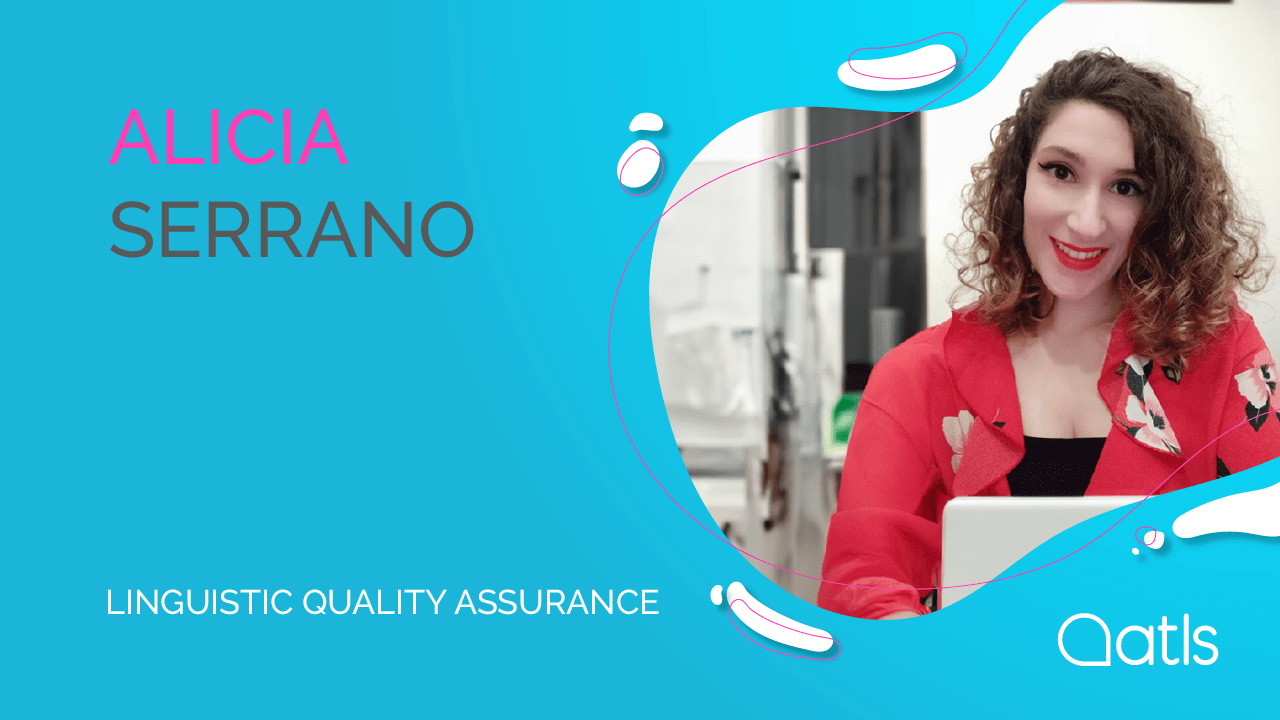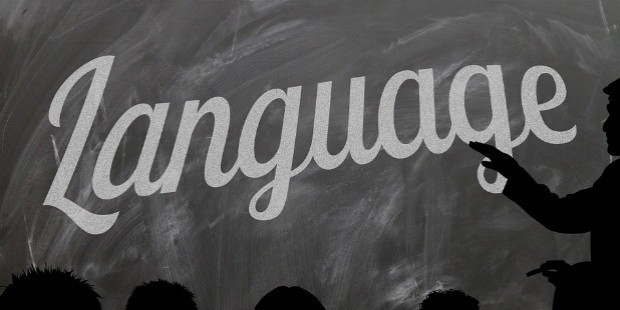How to generate leads through the website positioning in Germany

Keywords: web positioning, SEO in German, SEO strategies, SEO techniques, position website, positioning in Google, what is SEO, SEO strategy, organic positioning, position web page, how to position my website.
If positioning our website under normal circumstances is always a tricky affair, when we go to position it in another market, things get even more complicated; and if we don't know the language of that market, we're out of luck. Is it possible achieve good web positioning for Germany if German is not our native language (or if we don't even have a clue how to say good morning)?
The answer is a resounding yes, but under certain conditions. Positioning a website is not just a question of language, however it is essential. On the one hand, you will want to work with web positioning specialists and, on the other, you will need German SEO experts who are fluent in both the language and the culture of the market you are targeting.
At ATLS, we know that visibility on the Internet is everything, but also that international web positioning is not easy. For this reason, in this article we take a complete tour through the tempestuous universe of SEO in German from the perspective of those who are not German and know neither the language nor the culture of Goethe — the German equivalent of Cervantes, Shakespeare or Molière. Take localisation as an example 😉!).
We give you step-by-step instructions on how to get leads through web positioning in Germany
- What is SEO and why is it important?
- How do I achieve good SEO in German?
- Positioning your website in Germany requires being familiar with the German market
- Website positioning for Germany: step by step
- SEO tools to analyse web positioning
- Web analysis tools
- How do I localise content to position a website in Germany?
- Agency offering SEO in German
What is SEO and why is it important?
The (absolute) starting point is to understand what we are talking about when we refer to SEO. These three letters are the acronym for search engine optimisation, which essentially means optimising your website's positioning.
We can define this optimisation as the set of strategies, techniques, practices and actions to make a website appear at the top of the list in search engines (Google, Bing, Baidu and the like) whenever a user makes a specific search. Optimisation improves the results of the page in question.
Broadly speaking, there is internal optimisation (the contents of the website itself) and external optimisation (the presence or "fame" of the website on the Internet). In any case, organic positioning is always the goal, i.e., positioning that is achieved following examination of the website by web crawlers, without any type of advertising campaign.
It is clear to see the value of the web positioning for any page and the visibility of the project or business behind it. A sound Google ranking is the shortest way to decisive presence in a market, and sales success is often the consequence of clear and well-thought-out SEO strategies.
How do I achieve good SEO in German?
Wait a minute — is SEO in German different? In truth, SEO is different in each country, language or market. It's a matter of logic: if you want to enter an international market and your website is going to be your shopfront or sales channel, you will need to optimise it for this new market, right?
Depending on what we are looking for, we focus the content and data of the website on Germany, the German language or the German-speaking world. Keep in mind that we may be interested in positioning and selling in Austria or Switzerland (also German speakers), and web positioning strategies should match the respective market.
It is therefore clear that in order to be effective with our SEO in German, we must rely on three key pillars, which we will go over in greater depth throughout this article:
- A thorough study of the market we are targeting (is it Germany or is it the German-speaking world?).
- In-depth knowledge of the market's language (in this case, German) and the underlying culture.
- A mastery of SEO techniques for web positioning that is theoretical but above all practical (if we have experience in the German case, all the better).
Positioning your website in Germany requires being familiar with the German market
A first-order economic power, the European engine for imports and exports, a vigorous and dynamic market in which you simply need to be present if you know what is good for you. Full employment, lots of SMEs, environmental commitment; all of this is Germany in commercial terms.
Are you familiar with the case of the Borsalino hat in Bolivia, which started as a commercial blunder before becoming a cultural phenomenon? Don't get your hopes up, it's rare; usually, the product or service is adapted to the market, not the other way around...
The prerequisite for any commercial initiative in a new market is to carefully study that market. In other words, in order to perform SEO in German (and do it well), it is necessary to understand the German market beforehand.
We're going to review certain aspects that you cannot forgo in this preliminary analysis in order to obtain a good web positioning and thus generate leads in Germany and/or in German, which is what we want after all.
Consumer behaviour
As with any marketing campaign, we need to produce a "snapshot" of the consumer and their different profiles that is segmented according to our project and our objectives. Because, in fact, consumers have different traits in different contexts. We cannot simply expect the German consumer to behave in the same way as the Spanish consumer. This involves studying statistical data (demographic, economic, consumer, etc.) and comparing them with our starting market to discover the differences. Generally speaking and by way of example, the German consumer is considered to have high purchasing power and be quite impulsive, but also more informed and demanding than the Spanish consumer.
Market trends
Something similar happens with specific market trends: we need to be familiar with them and understand them, because they will not necessarily be the same as in our home market;they may even be the opposite. Yes, some traits are more or less structural, almost stereotypical (they like sausages, beer and the Canary Islands) and often vague...
However, we will find others that are more contextual and linked to each specific sector which can make the difference; vegan sausages may be trending, they may be switching to dark beer and La Palma may overtake Tenerife as the new favourite destination. It is in your interest to be aware of these changes and nuances in order to adapt your web positioning.
Understanding the culture
Probably the most important factor for good SEO in German is to have a thorough understanding of German culture. Being familiar with eating and dressing habits, timetables, favourite leisure activities, what the Germans think about this or that topic, etc.
There is a long German word (of course) to define this: Weltanschauung. These are common cultural traits built on shared experiences, beliefs and values; a "worldview". Language is an integral and highly important part of this culture, but it is not the only one. It is necessary to know the literary, musical or television references, to be aware of historical experiences, to follow the political context, etc.
Website positioning for Germany: step by step
When it comes to the moment of truth, when we position our website using SEO in German, we will be guided by the "typical" procedure in our language, but always bearing in mind that we are working for a different language and a different market, so we have to know how to adapt accordingly.
Thus, the seven essential phases of website positioning (as well as the tools used to establish and optimise it) presented below will be quite familiar to you if you have already worked with them for your home market, but they will require more effort and a "finer" touch in terms of linguistic and market analysis.
1. Target audience and competitor research
It is about knowing who you want to target and how to do it. Your audience or your buyer persona will have certain traits that will be established by your product or service (e.g., their age). But what are their interests, what are their values, and what do they look for when they shop? And what are your competitors doing?
It is also important to be aware of particular aspects of the market (which may be overlooked or seem irrelevant to us if we are not SEO experts). As an illustration, how important is online adspend in the German market compared to the Spanish or other markets?
2. Analysis of keywords
Keywords are the backbone of SEO. If you already have a list for your local market, the next step is to look for the most suitable equivalents for the German market. This can be done by utilising specific analysis tools and by analysing native competition, but only as guidance.
More than ever, it is necessary to carefully check translations by monitoring syntax, synonyms and even acronyms and abbreviations. A classic machine translation error that occurs in German-language SEO is mistaking alt: "old" in German, which has nothing to do with "height" in Spanish...
3. Optimising the website: SEO techniques
Optimising multilingual or multi-regional websites involves painstakingly adjusting the website's characteristics to offer the best user experience in different languages and countries.
Several internal SEO techniques are at stake, including:
- Using tags to create language- or region-specific URLs, or setting up dynamic redirection.
- Using language attributes and sitemaps to notify search engines of the language or geographic segmentation of each page.
- Creating URL structures with the appropriate domain names for each country or language.
- Using metadata (e.g., titles and descriptions) translated and localised by SEO translation specialists.
- Creating targeted, original and quality content for a specific market or in a specific language.
It is always advisable to sit with experts and stop to think about the most technical and specific criteria of the SEO universe that cannot be overlooked.
4. Devising an SEO strategy for the German market
When defining product names and slogans, the topics you address in your corporate blog and the tone in which you address your potential customers are fundamental. An SEO strategy in German that is adapted to the language, country and audience will be your best roadmap.
Your web positioning strategy should be aligned with your more general international marketing strategy, naturally, but you will also have to consider a lot of concrete matters that are specifically related to the internationalisation of your online visibility and the development of SEO in German.
5. Creating relevant and optimised content
This is probably the key factor for a page to achieve a good web positioning. Original, up-to-date and quality content is what defines the relevance of a page and, to a great extent, its authority, which is the same as its visibility and prestige.
When it comes to SEO in German, it is essential to find out (and apply) the most effective approaches to interact with the audience, to learn about the topics of interest for the context or segment we want to address and to be idiomatically natural for the Germans. Inhalt ist König!
6. Link-building strategies for the German market
Establishing links in a foreign market is a double-edged sword if we are not fully familiar with the market and the language it speaks: which hyperlinks are valuable or relevant? How do we decide where to publish a sponsored post or which forums to reference in order to gain authority and prestige?
Again, this shows how important it is not only to carefully analyse the competition and pagerank in the German-speaking world (which it is), but also to be very familiar with the current digital landscape in the German language to achieve quality link building when we undertake SEO in German.
7. Implementing local SEO for the German market
For certain products and services, local SEO (optimisation for physical and nearby sales) is crucial. This would involve keyword selection, indexing in directories such as Google My Business, knowing the conventions (currency, time, area code) and calendar of local events or keeping up to date with social media activity.
Simple details such as the order of the data in a physical address or gross typographical errors such as the incorrect use of German characters (e.g., eszett — the letter ß — or the umlaut) give the impression of careless use of the language, alienating the reader and diminishing the effectiveness of our SEO in German.
SEO tools to analyse web positioning
We are not going to expand too much on the tools related to web positioning because, at the end of the day, we will use usual SEO tools while taking advantage of some of their more specific characteristics, such as:
- Keyword Magic Tool by SEMRush to get suggestions in the target language.
- Relevant filters by country from Google Keyword Planner to narrow down the list.
- SEO Hero Ninja: fast, practical and simple, it is ideal for geo-localised positioning.
- Ahrefs, which includes specific features for international SEO in its suite.
Web analysis tools
Whether undertaking SEO in German or in any other language, everyone has their own personal preferences, but in general we can point to the following tools as the most useful:
- Google Analytics. The undisputed Bible of web analysis.
- Woorank and its Site Crawl, which helps us a lot with the technical SEO audit.
- The SEMRush Audit Site, ideal for working with the "hreflang" tag.
- Ahrefs, again; it allows users to analyse the competition in a given country.

How do I localise content to position a website in Germany?
With localisation comes the moment of truth to make your SEO in German sound completely natural and fluent to the German-speaking audience. And that's not all: the aim is to be natural and fluent for the particular population segment, geographical territory or professional group that corresponds to your potential customers.
In addition, and focusing more on the language aspect of all this, effective localisation must meet certain criteria in terms of the use of a specific dialect, register and sometimes even slang, which will really make the difference in converting those people who visit your website into the leads you are looking for.
Translation and localisation of a website
While translating is considered (broadly) as conveying the meaning of a language message to another, localising involves shifting that message into the target language by "converting" it culturally to suit the target audience. A well-localised text is one that uses the linguistic and cultural references of the target language naturally.
This sometimes requires "starting from scratch" by doing what we call transcreation. Many aspects of our project or business will be directly affected, from the name of the product to the promotional material, as well as formal conventions (e.g., the way of expressing value or price, to name but one of many).
If you have thought about doing your SEO in German using Google Translator or any other automatic translator, forget it. A clumsy or literal translation could have terrible consequences, as it might lead to misconceptions, misunderstandings and, ultimately, a poor or damaged brand image. A real-life example of a cosmetic brand's "slip-up": mist in English is "dung" in German.
Be familiar with cultural values and beliefs
In order for your potential customers to "understand" your product or service and identify with it, you need to go beyond mere words. You have to understand their culture and all that it implies; this is called "intercultural competence", and it is essential for good website positioning.
It is essential to carefully analyse our source material and to pay close attention to the nuances that are often overlooked by non-specialists. Perhaps an advertising campaign that paints picaresque in a positive light will be a success in Spain and a complete fiasco in Germany. Or perhaps the use of certain terminology is critically inadvisable in German SEO because of gender issues.
Presuming the meaning of words on subjects as disparate as politeness, time, humour, notions of solitude and intimacy, emotional management, child rearing or Sunday work is a very risky way of presenting our brand image on an unknown market.
Use expressions relevant to German culture
Have you noticed that we say "latte" to refer to a certain type of coffee? Well, Germans refer to LGBT Pride Day as Christopher Street Day. These are two good cases to understand that quality SEO in German is not necessarily about translating everything word for word... It's about using the right expressions at the right time.
This is especially problematic when working with metaphors or idioms; it is easy to overlook nuances (e.g., in concepts such as "pride" — Stolz —, positive, and "arrogance" — Hochmut —, negative). Another classic example of intercultural confusion: unlike in Spain, where ear-pulling has to do with birthdays, in Germany, it's a reprimand.
Special care must also be taken with CTAs, or calls to action (a mainstay of the conversion of qualified leads), because we can be overly aggressive or, on the contrary, too vague or imprecise and thus spoil all the work done before. And we don't want that, do we?
Find out what type of content and format they prefer to consume
It is said that Germans are to the point and meticulous about the things that matter to them... and it's true. We must take this into account when defining the type of content we plan to publish and our approach. If we plan to pursue SEO in German, let's just say that it might not be the best time to get rhetorical and overthink things.
Similarly, we should be aware of and take into account consumption habits and formats in Germany, Austria or Switzerland, or among certain segments of the population. This affects both our product or service itself and how we promote it. Communicating through video or text will have a huge effect on our web positioning — marketing big bags or small packages, too.
Another key factor to take into account in order to get where we want to go is knowing the preferred channels and payment methods of Germans. It is often surprising many Germans prefer cash to cards when paying. Is it more efficient to pay by PayPal, by bank transfer or by phone?
Agency offering SEO in German: we help you to position your website on the German market
Having said all this, it will have become clear that getting your potential German customers to see you, to know you, to trust you, to buy from you and ultimately to have a good shopping experience necessarily involves creating a German-style strategy and localising the product/service, the website and its contents professionally.
At the end of the day, what we are trying to do by optimising our SEO in German is to reach a larger German (or German-speaking) audience and potential customer base through quality SEO. As in any other commercial project, having experts (in this case, experts in SEO in German) certainly makes a difference.
At ATLS, we have the resources and experience to help you achieve these goals, from the word count of your website and establishing the list of localised keywords, to creating specific content and analysing the results of a specific marketing campaign.
If you are going to plunge into a new market outside your borders and far from your linguistic comfort zone, do it in the company of professional experts. This is the best advice we can give you if you want to make the best use of your resources to achieve a web positioning that will bring you good visibility, a fitting potential customer base and great sales success!
If you are interested in getting more leads and don't know how to do it, don't hesitate to contact us.






